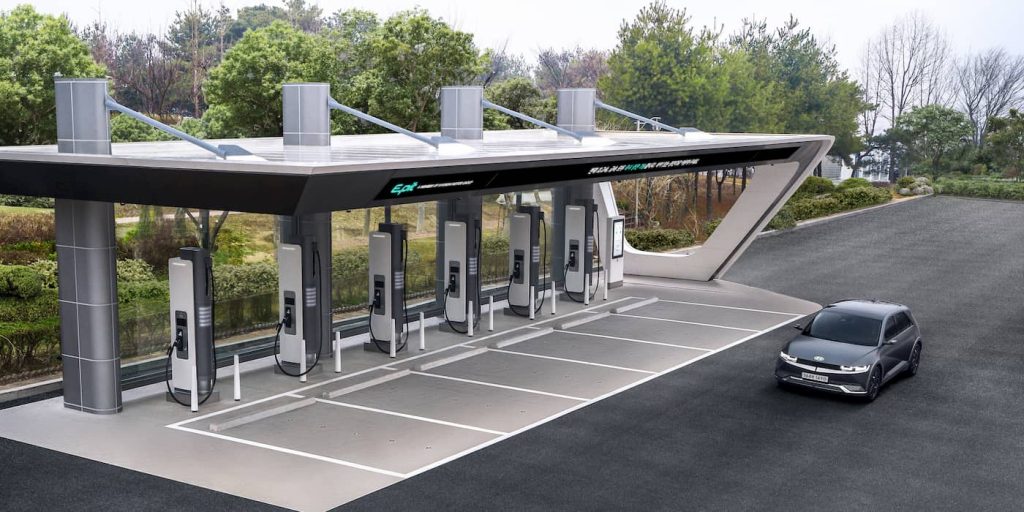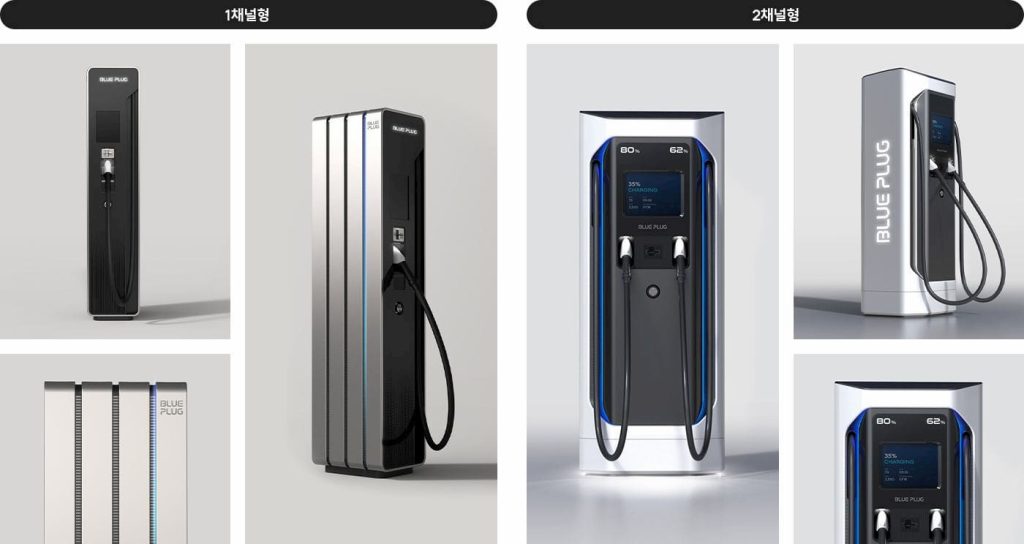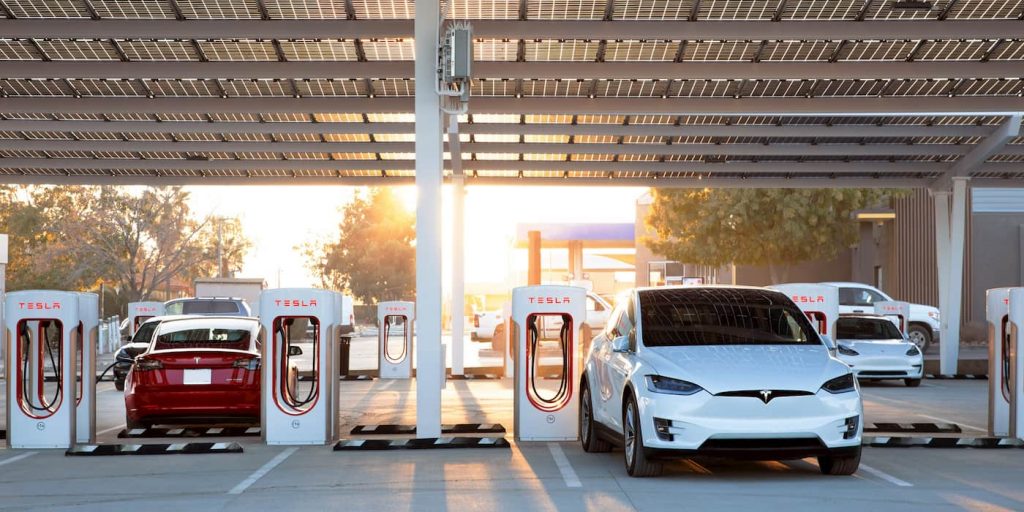
To rival Tesla’s proliferating Supercharger network, Hyundai Motor Group is developing its own ultra-fast EV chargers.
Although many automakers recently partnered with Tesla to use its Supercharger network, Hyundai looks to take the road less traveled.
According to a new report from KED Global, Hyundai Kefico Corp, an electronic management systems supplier under the Hyundai Motor Group, is looking to get its fast chargers with 350 kW output certified by the Korean government.
Hyundai hopes to accelerate the rollout of its new EV chargers with plans to launch them within this year, pending approval.
At a demonstration event last January, the supplier announced it would be launching a “hyper-fast charger” business for EVs. Hyundai Motor Group’s purchasing team was at the event and is expected to use the chargers across South Korea.
The company revealed the “Blue Plug” business brand for the first time at the 2023 Seoul Mobility Show in early April.
Meanwhile, in March 2021, Hyundai Motor Group unveiled its plans to build a super-fast EV charging network under the E-Pit brand. The auto leader vowed to roll out 120 E-Pit ultra-fast chargers by the end of the year, but the progress has been derailed.

Hyundai to rival Tesla’s Superchargers network
The number of Hyundai E-Pit sites is 36, up from 12 in April 2021. During the same time, Tesla’s Supercharger network has grown from 33 to 106 in the region.
Hyundai promotes its E-Pit charging stations as an upgrade, claiming it has “greatly improved the current charging station in terms of convenience.”
Each E-Pit features four to six 350 kW chargers, requiring suppliers to use expensive materials to build the high-end chargers. Hyundai says electric cars can charge from 10% to 80% within 18 minutes.

The company’s commitment to a premium EV charging experience is driving up costs while making it challenging to find suppliers and slowing the network’s momentum. As highlighted in the report, the construction costs for E-Pits can be over $113,000 (150 million won) to build typical 350 kW chargers.
While Hyundai has faltered so far, Tesla’s Supercharger network has thrived. Tesla is poised to widen its lead, but Hyundai looks to slow its roll with its own fast chargers.

Electrek’s Take
The news comes after many prominent automakers, including Ford, GM, Mercedes-Benz, Rivian, Nissan, Honda, Polestar, and more, announced they would adopt Tesla’s NACS, giving their vehicles access to the Supercharger network.
Hyundai Motor Group, including Kia and Genesis, is among the few outliers. The company’s CEO, Jaehoon Chang, said the company would consider joining but that it would be up to the customers in March.
Meanwhile, Hyundai was one of seven auto giants that formed a joint venture last month to develop a high-powered charging network across North America with at least 30,000 chargers.
Tesla operates over 45,000 Superchargers globally. Wedbush analyst Dan Ives told investors in a new note last week that he believes Tesla’s Supercharger network could represent 3% to 6% of total revenue, or $10 to $20 billion, by 2030 – perhaps the reason Hyundai wants to rival it with its own.
Author: Peter Johnson
Source: Electrek



